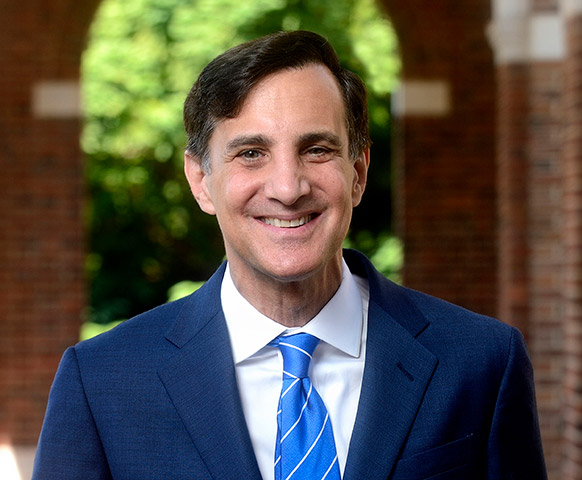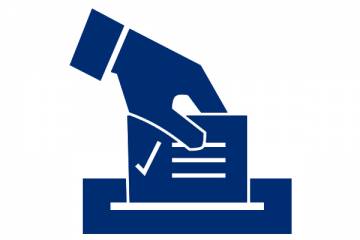
Image caption:
Ronald J. Daniels
President
"Democracy," wrote philosopher John Dewey, "has to be born anew every generation."
This admonition seems particularly salient given the many threats and challenges confronting democracies around the world—rising populism, increased political polarization, and growing skepticism of cornerstone institutions like the courts and the rule of law.
In our own country, fewer Americans today, compared to 30 years ago, believe it is essential to live in a democracy, and surveys show a startling number of young people—at home and abroad—are open to authoritarian forms of government.
This moment invites the question of what institutions of higher education can do to mitigate or even reverse these disturbing trends.
Indeed, higher education is indispensable for democracy to flourish. Higher education can provide students with skills and knowledge that prepare them for participation in democratic life. Higher education can foster openness to new ideas that will enable young people to work together as citizens and future leaders. Most importantly, in a world of myriad information sources and rampant disinformation, higher education can nurture powers of discernment and critical judgment that are essential for responsible citizenship.
At Johns Hopkins, we have recommitted ourselves to advancing these aims in a number of different ways. For instance, our Second Commission on Undergraduate Education, known as CUE2, has been tasked with evaluating our capacity to cultivate the skills of analysis, debate, and dialogue that are not only at the heart of the academic enterprise but also central to effective participation in a democratic society.
But we also have another role to play: to ensure our students understand and exercise the core habits of democratic citizenship, especially their responsibility to exercise their franchise as voters.
Voting is the essence of political engagement. Yet, as surveys have shown, participation by young people lags behind that of older generations. For instance, in the last national election, only 43 percent of 18- to 24-year-olds voted. Among college students, that number rises to 48.3 percent. Johns Hopkins has a better story to tell with participation at 55.8 percent. However, we have the opportunity—and the responsibility—to help our students aim higher.
This fall, we are aiming to do just that. Our Center for Social Concern will be working closely with the Student Government Association and student leaders to promote participation among all our students, leverage technology to make it easier for students to register and vote, and fuel broader student engagement at the polls, including as election judges.
At a moment when democracy again must be born anew, it is more important than ever that we all use the vital skills and tools that sustain democracy. At Johns Hopkins, we will continue to fulfill our role of educating citizens who can and do.

Ronald J. Daniels
President








